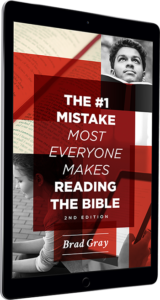Episode 187 – Out of Context Pt 3: Examine Yourself Before Communion
Key Passage(s): 1 Corinthians 11:20-33; Luke 7:34
Communion … out of context … REALLY? That’s not what usually comes to mind when we think about Scripture’s instructions on the Lord’s Supper. In 1 Corinthians 11, the apostle Paul commands believers to “examine themselves” before taking communion so they don’t “eat in an unworthy manner.” Pulled from their context, these words are generally used in worship services to invite personal reflection. But Paul was addressing something far more specific and challenging in the life of the Corinthian church that we cannot afford to miss. By the end of this episode, you’ll have a new appreciation for the power of meals to bring healing in a divided world!
Discussion Questions
- What was your biggest takeaway from the teaching?
- If meals heal, and eating was a central way Jesus embodied God’s kingdom, how can we as followers of Jesus be more strategic in the kinds of meals we share? What would that look specifically look like?
- Why do you think meals are such a powerful vehicle for creating human connection?
- What are some of the ways you’ve seen or experienced the Church reflecting the divisions and polarization of our society?
- What are some of the beautiful and inspiring ways you’ve seen or experienced the Church reflecting the unity of Christ’s kingdom?
- What did you think of the research about the healing power of family meals?
- How will you begin living out the truths of this teaching this week?
For Further Study
- A History of Rome (The Great Courses) by Garrett G. Fagan – The Shape of Roman Society (Lecture 37)
- A Meal With Jesus by Tim Chester
- Subversive Meals by R. Alan Street
- The Benefit of Family Mealtime (Article) by Harvard Graduate School of Education
- The Patient Ferment of the Early Church by Alan Kreider
As an Amazon Associate, we earn from qualifying purchases (at no extra charge to you).





Overall, true to text, but some points somewhat over exaggerated. Failed to see Paul’s concern in chapter 10 re the “ONE body.” Chapter 11 continues that concern. His plea is for the Corinthians to demonstrate Christian love (13) when they gather by “waiting for one another.” Putting others before self. This is why “the body” in chapter 11 must be distinguished between the literal body of Christ And the body of believers. Thanks for your ministry. Selah!